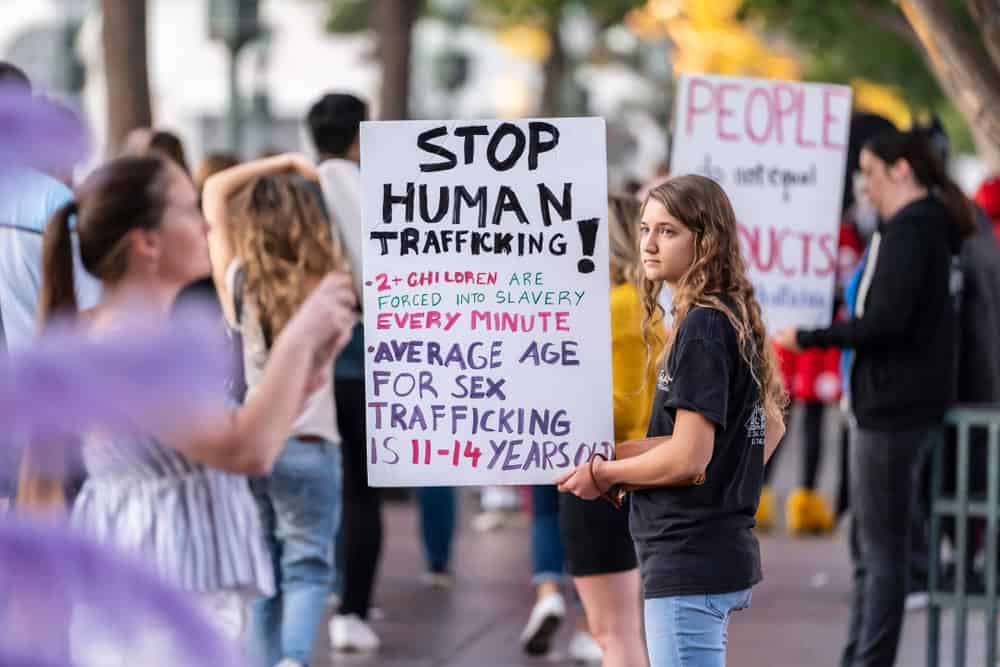National Human Trafficking Awareness Day, observed on January 11, shines a much-needed spotlight on the global crisis of human trafficking. But shouldn’t this issue be at the forefront of our minds every single day? Traffickers continue to exploit vulnerable populations, leveraging technology to perpetuate abuse. This problem demands sustained attention, robust legislation, and collective action to protect victims and hold perpetrators accountable.
What Is National Human Trafficking Awareness Day?
As Equality Now highlights, National Human Trafficking Awareness Day was established to bring attention to the pervasive issue of human trafficking, particularly the exploitation of women and girls. According to the UN Office on Drugs and Crime (UNODC), 60% of trafficked girls and 66% of trafficked women globally are exploited for sexual purposes. This urgent crisis underscores the importance of robust, ongoing advocacy and action.
The Role of Technology in Facilitating Exploitation
Tech-facilitated sexual exploitation and abuse (TFSEA) is a growing challenge, leveraging tools like social media, encrypted messaging apps, and online platforms to recruit and control victims. According to the U.S. Department of State, traffickers often exploit the anonymity of the internet to coerce victims. Women and girls represent 77% of detected victims of trafficking for sexual exploitation globally (UNODC 2024 Global Trafficking in Persons Report).
The digital age has fundamentally altered how trafficking networks operate, Equality Now says. Predators use online grooming and coercion to entrap individuals, particularly those from marginalized communities. As the UNODC notes, advancements in technology allow traffickers to maintain control while evading detection, creating additional hurdles for law enforcement and advocacy organizations.
Key Legislation in 2024 to Combat Trafficking
In 2024, legislative efforts focused on addressing the intersection of technology and human trafficking, with the following notable developments that Equality Now highlighted:
- S. 474: REPORT Act: Signed into law in May 2024, this act mandates extended data retention and broader reporting requirements for online platforms.
- S. 412: SHIELD Act: Aimed at imposing stricter regulations on tech companies to prevent trafficking on their platforms.
- S. 1207: EARN IT Act: Focused on survivor resources such as legal aid and mental health support.
- S. 1199: Stop CSAM Act: Enhanced international cooperation for dismantling trafficking networks.
- H.R. 2661: Project Safe Childhood Modernization Act: Targeted prevention programs for vulnerable communities.
Despite only the REPORT Act becoming law, several other bills garnered bipartisan support and are expected to be reintroduced in 2025.
Advocacy in Action: Equality Now’s Role
Equality Now continues to be a leading force in the fight against trafficking, employing a multifaceted approach:
- Advancing Legislative Change: Advocating for survivor-informed policies and participating in government listening sessions, such as the December 2024 meeting in Washington, D.C., with over 60 survivors and advocates.
- Global Advocacy: Engaging in UN initiatives like the High-Level Political Forum and the Commission on the Status of Women to push for systemic change.
- Amplifying Survivor Voices: Centering survivor insights in policy recommendations and collaborations.
Equality Now’s research into the exploitation of technology, including deepfakes and online harassment, highlights how these tools are weaponized against victims. By combining survivor voices with robust research, the organization drives systemic reform.
A Call to Action
On National Human Trafficking Awareness Day—and every day—we must commit to combating trafficking and TFSEA with survivor-centered, human-rights-informed approaches. This fight is central to achieving the United Nations Sustainable Development Goals, particularly Goal 5 on gender equality. Policymakers, businesses, and individuals must act decisively to protect vulnerable populations and ensure that no one is left behind in the fight for justice.




